Will Brexit result in more 'Skype families'?
- Published
Could you keep a family together over Skype? Here's how three women are doing it in the UK
Thousands of Britons will spend Christmas separated from a loved one, communicating via the internet. It's earned them the nickname "Skype families". With Brexit looming, more families are worried they too could be separated.
Becky Darmon met her fiancé Abdou two years ago while volunteering in Marrakesh, Morocco.
Originally from Norwich, she never thought she'd fall in love with someone who was not from the UK. She now has an eight-month-old daughter, Alia, with Abdou.
However, Abdou is unable to live with the rest of his family in the UK.
"I've missed a lot of things," he says. "Alia started crawling, I wasn't there. Alia started teething, I wasn't there. I always feel so guilty for not being there."
'A lot of money'
Shortly before Alia was born, Becky returned to the UK for the birth.
Abdou, a non-European Economic Area (EEA) citizen, can't join them in the UK because, since 2012, Becky would have to meet a £18,600-a-year base earnings requirement.
As a single mother she does not earn that much.
"It's a lot of money for the price of being together," says Abdou, whose earnings aren't considered.
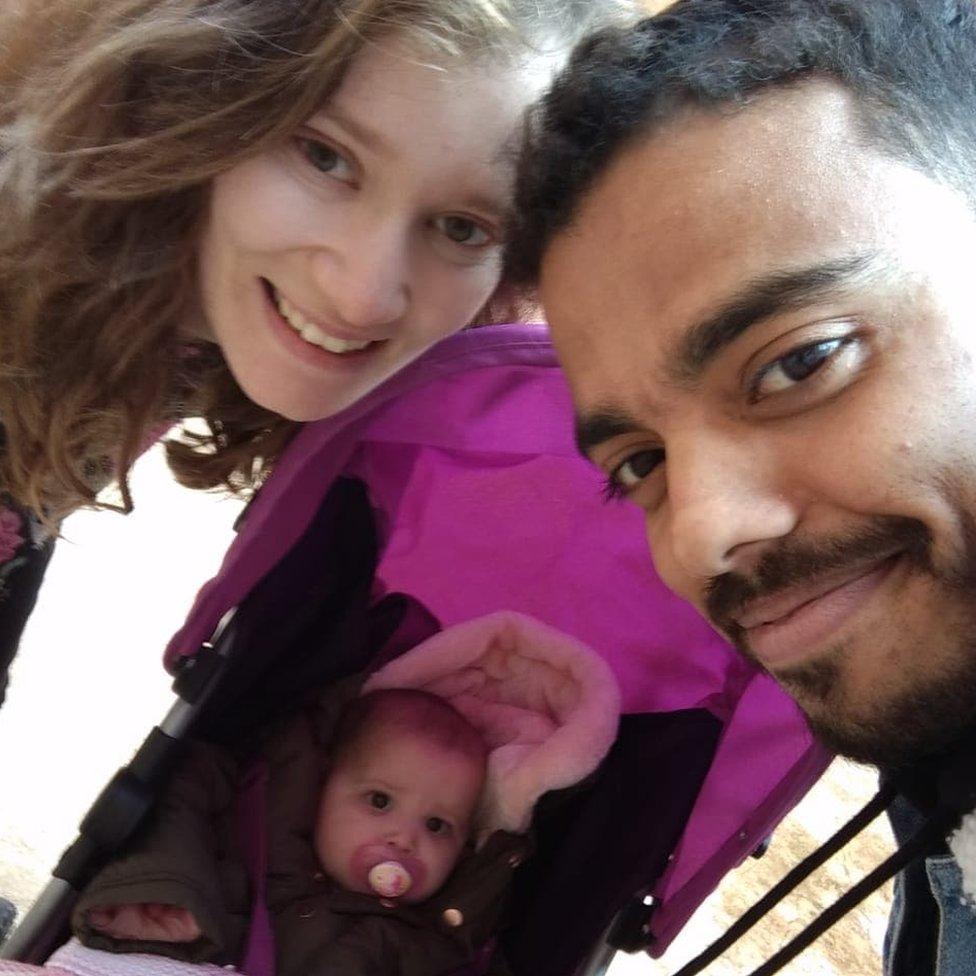
Becky Darmon and her fiancé Abdou have an eight-month-old daughter
"I hate the idea of the Moroccan guy going after a European girl because he wants to live there.
"Originally we decided after we got engaged that Becky would come to live in Morocco, but then we found out that she was pregnant and we wanted the best medical care."
Their daughter is one of an estimated 15,000 British children who belong to Skype families.
Surinder Singh route
The government introduced the Minimum Income Requirement (MIR) in 2012, when Theresa May - then home secretary - said it would "stop migrants becoming a burden on the taxpayer".
Until now, however, many Britons with non-EEA partners have tried a different way to reunite their family in the UK.
Aliyah and Stuart are in their early 20s and met when they were 15 on the online chat site Chatroulette - "when that was the thing to do".
Aliyah is from Columbus, Ohio, in the US, while Stuart is from Scotland. We are using their middle names at their request.
They married in May this year and had already relocated to Ireland before the end of the same month to try the so-called Surinder Singh route.
Named after an historic court case, it involves leaving the UK and working in the EEA for six months.
By exercising rights under European freedom of movement, a British person's status as a European citizen then takes priority over their status as a UK citizen.
When returning to the UK, the Briton is allowed to bring their non-EEA spouse without having to meet the minimum earnings requirement.
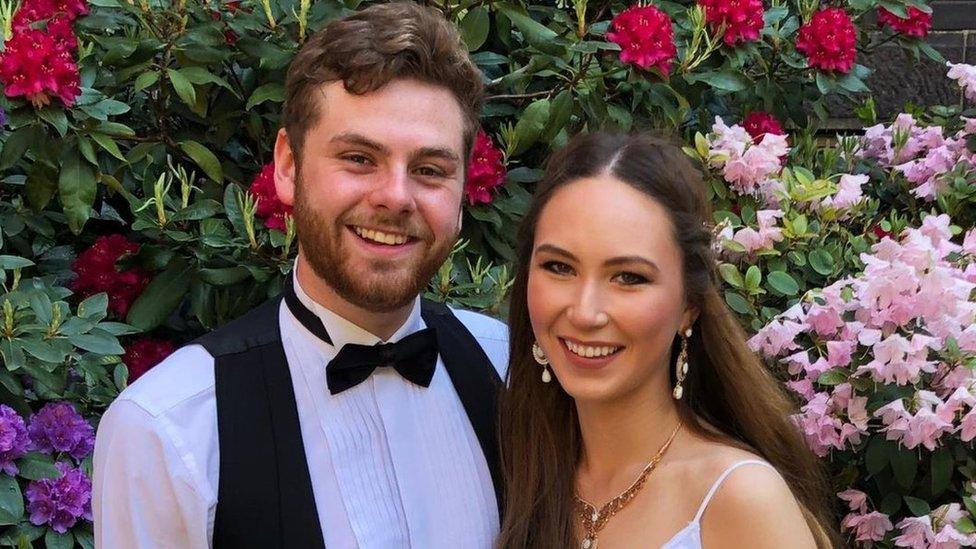
Aliyah and Stuart met online and now live in Ireland
"We read about the route in the comment section of an article," Aliyah says, "and thought this could be an option for us."
However, with Brexit on the horizon, Aliyah and Stuart could be in the last batch of couples to attempt the route, which some believe amounted to a loophole in immigration law.
Under the current draft withdrawal agreement between the UK and the EU, the rights they used are not protected - meaning the route could be closed for transnational couples.
"We've either gotten very lucky or very unlucky because we imagine we'll be one of the last ones to attempt this," Stuart says.
"If couples haven't already made the move to Europe it's probably too risky to start now because if your first attempt is rejected - as sometimes happens - it doesn't leave much time to appeal or try again."
'One-way ticket'
Brexit could also mean that British citizens with European partners may also need to qualify financially if they want to return to the UK together in the future, as laid out by the government in a White Paper on immigration published on Wednesday.
Suzy Sumner has been living in the Belgian capital Brussels for 18 years and has two children with her French partner.
She has no plans to leave the country they now call home. However, she anticipates a time when she'll have no choice but to return to look after her elderly mother.
She's worried about what her future options will be.
"I came over in 2000 as an EU worker when it was possible to just move around and try different things and if someone told me that it might be a one-way ticket I would possibly have thought differently about it," she says.
"Will I have to choose one day between my mother and being separated from my husband and not being able to bring him with us?"
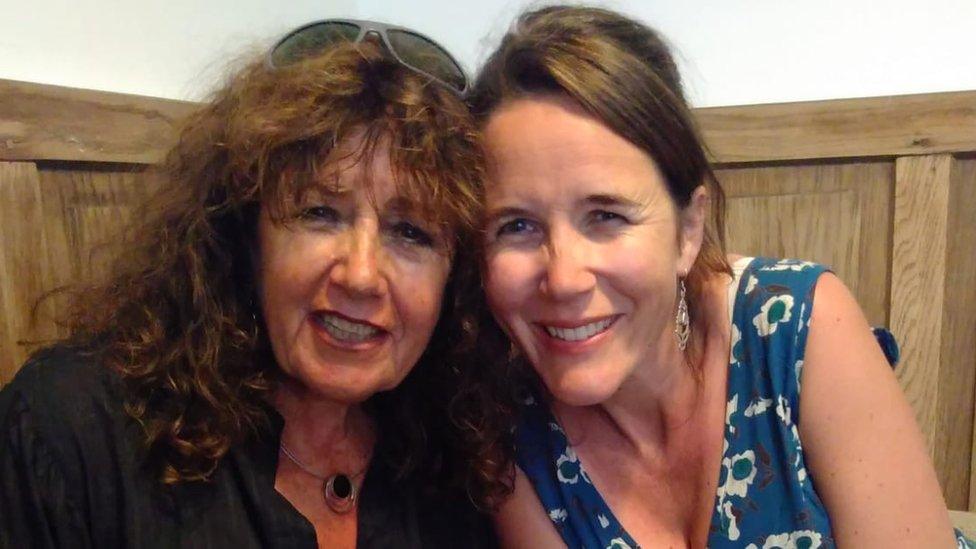
Suzy Sumner moved to Belgium 18 years ago
The Home Office told the BBC that those who come to the UK via the Surinder Singh route will be able to apply under the EU Settlement Scheme to remain in the UK - but only if they do so before the end of the planned implementation period on 31 December 2020.
After that date, the only option will be to meet the minimum income requirement, or the alternative of having £62,500 in cash savings.
Campaigners say women and people from a BAME backgrounds are most likely to be affected.
Recently the UK government said its income policy was primarily aimed at "helping to restore public confidence in the immigration system."
And while some say the position is unfair, a Supreme Court judgement last year ruled in favour of the policy despite calling it "particularly harsh".
"The Supreme Court ruled the policy to be lawful in 2017," Alp Mehmet, Vice-Chairman of Migration Watch UK, an immigration think tank said.
"Indeed the government's Migration Advisory Committee noted that the level of the threshold should be higher than £18,600 if it was to cover the cost of public services such as healthcare, education and defence."
It said the minimum income threshold was below the average annual income in the UK.
No regrets
"I don't have any regrets with who I fell in love with," Becky says.
"However, I do feel like I'm not entitled to fall in love with someone from outside the EU."
Last month, Alia was well enough for Becky to fly to Morocco and introduce Abdou to his daughter for the first time, before returning to the UK without him.
"It definitely felt bittersweet," she says.
"It was probably the happiest moment in my life seeing my little family together. It was just so hard seeing Alia grow a special bond with her dad before it was taken away again."
- Published19 December 2018

- Published19 December 2018
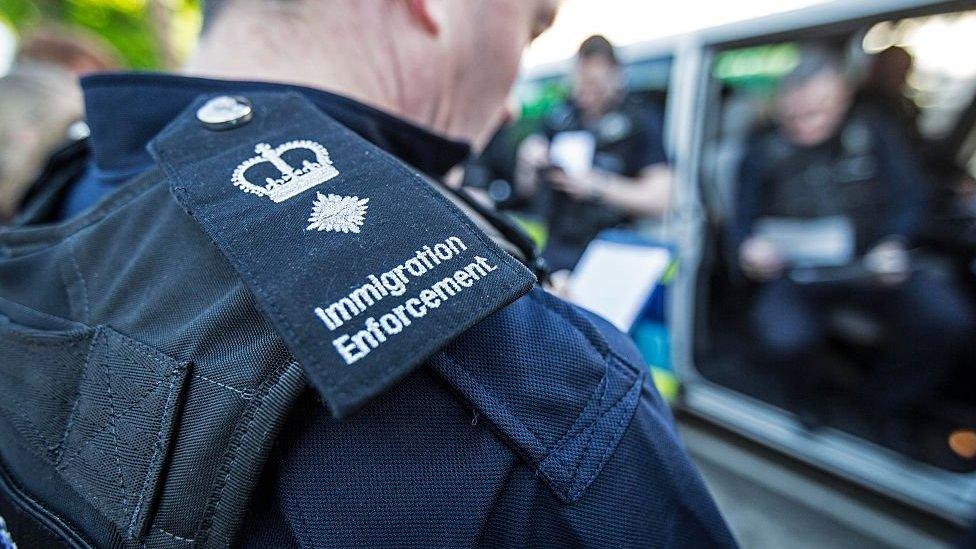
- Published29 November 2018
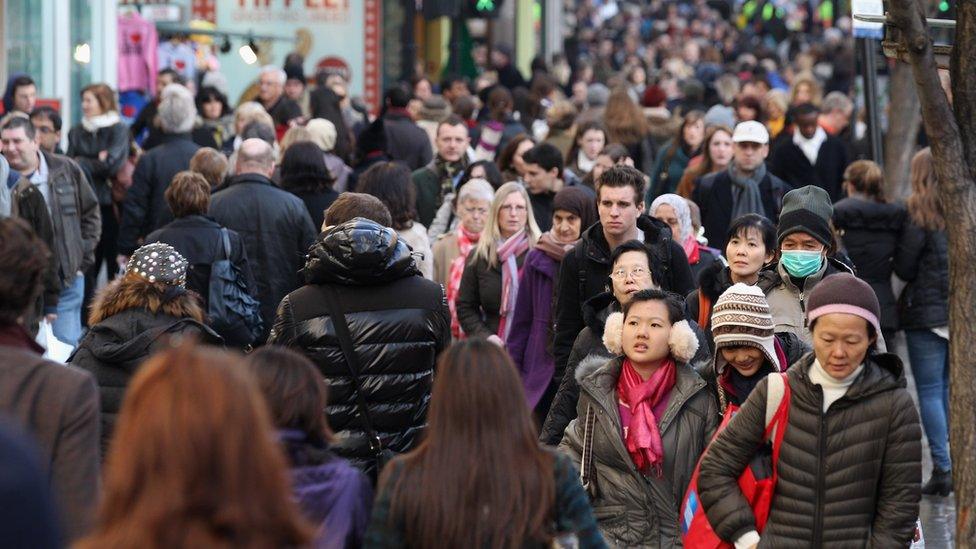
- Published18 September 2018
